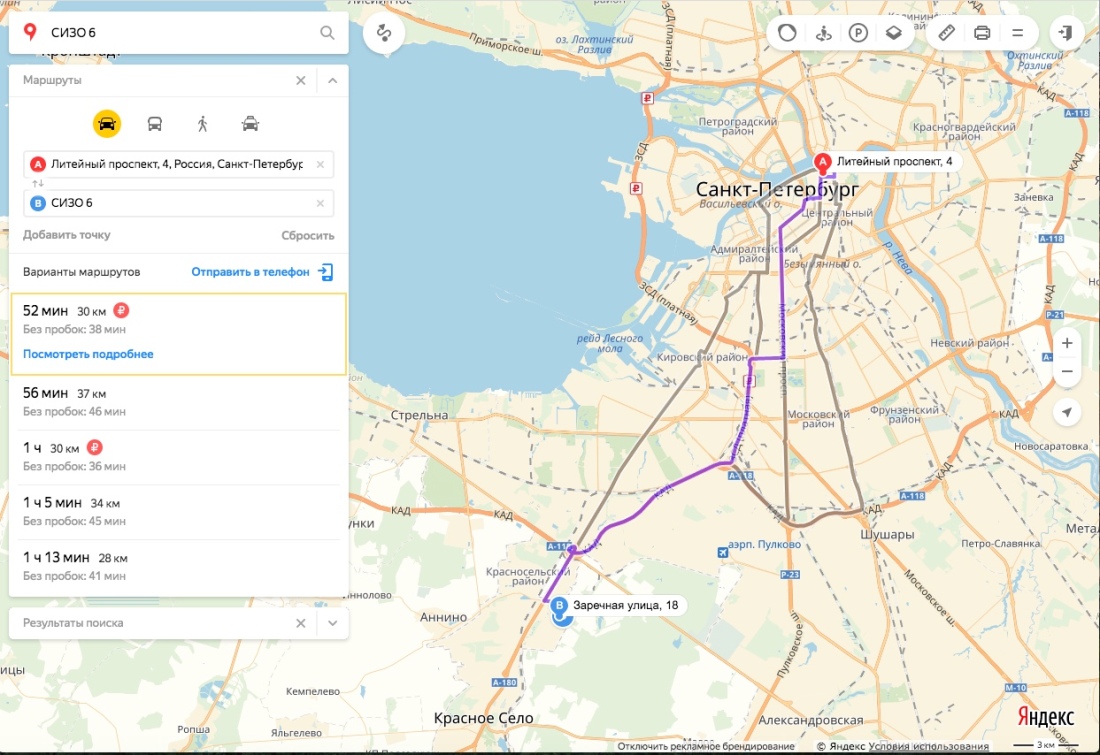
Russia: How Will the Laws on Disrespecting the Authorities and Fake News Play Out?
Ivan Ovsyannikov
Eurasianet
March 26, 2019
Six months after easing punishments for speaking out on the internet, Vladimir Putin has signed laws that would restrict freedom of speech in Russia, argue civil rights activists.
People who are deemed to have disrespectfully criticized the Russian authorities and disseminated fake news face blocked websites and stiff fines.
The new laws do not explain how to distinguish ordinary criticism of the authorities from disrespectful criticism, and fake news from honest mistakes or the truth, in cases in which the authorities have decided to declare it fake. Defining disrespect and unreliable information has been left to the discretion of the authorities.
How the New Laws Are Worded
According to Russian Federal Law No. FZ-30 and Russian Federal Law No. FZ-31, which have amended the previous law “On Information, Information Technology, and Information Security” (Russian Federal Law No. FZ-149, dated July 27, 2006), people who disseminate “unreliable socially significant information in the guise of reliable news” could be fined, under the corresponding amendments to the Russian Federal Administrative Offenses Code, between 30,000 rubles and one million rubles, while people who voice their “flagrant disrespect” for society, the state, its authorities, and its symbols “improperly” could be fined between 30,000 rubles and 300,000 rubles.
On March 18, 2019, Putin signed the corresponding law bills, as previously passed by the State Duma and the Federation Council, into law.
Russia’s federal communications watchdog Roskomnadzor now has the power to restrict access to a website that has published “false” or “disrespectful” claims, according to law enforcement agencies, without a court’s sanction.
Both law bills were tabled in the Russian parliament by Andrei Klishas, who formally represents Krasnoyarsk Territory in the Federation Council, the parliament’s nominal upper house. Klishas had previously coauthored law bills on making the Runet autonomous, on stiffening punishments for advocating separatism, on breaking rules for holding political rallies, on desecrating the national anthem, and on declaring media outlets “foreign agents.”
 Andrei Klishas, a member of the Russian Federation Council for Krasnoyarsk Territory. Photo courtesy of Ilya Pitalev/RIA Novosti and RBC
Andrei Klishas, a member of the Russian Federation Council for Krasnoyarsk Territory. Photo courtesy of Ilya Pitalev/RIA Novosti and RBC
The Russian Government Will Be Able to Pinpoint and Block Bad News
Despite the prohibitive bent of MP Klishas’s lawmaking, he heads United Russia’s “liberal platform,” stressing that his law bills are not attempted crackdowns. When discussing the law criminalizing disrespect for the state and society, Klishas pointed to European precedents.
“The rules existing in Europe say you can criticize the authorities as much as you like and demand their resignation. […] But when you communicate with the authorities, you should show respect, because they did not appear out of the blue. They are the outcome of people’s choices,” Klishas told Znak.com in an interview published in February 2019.*
As for the law on so-called fake news, MP Klishas stressed only people who distributed knowingly false information that engendered panic and endangered society had to fear prosecution, not reporters and bloggers who made honest mistakes, he told the website.
Klishas’s stance is not shared by the Russian Presidential Council for Civil Society and Human Rights, which described his law bills as unacceptable, anti-constitutional, and a threat to the public.
“The way in which these innumerable, insane law bills are tabled reveals a simple desire to curry favor with the regime. They generate a sense of legal uncertainty. First, swearing was criminalized. Then ‘extremism’ and ‘foreign agents’ were targeted. Now fake news and ‘disrespect for the authorities’ have been added to the list. Give the well-known practice of selectively charging and convicting people for these crimes, no one knows what might get them in trouble,” says journalist and presidential human rights council member Leonid Nikitinsky.
The law on fake news does not stipulate how real news should be differentiated from counterfeits, which makes the law a bogeyman, argues Nikitinsky. The authorities can use it to trip up undesirable journalists and silence unwanted news.
Nikitinsky notes that, while Russian state propaganda is chockablock with fake news, it is is independent media that are primarily at risk of being penalized for violating the new law.
New Prohibitions Make Up for Easing of Old Bans
Pavel Chikov, head of the Agora International Human Rights Group, argues the penalties for disrespecting the authorities and fake news are meant to compensate for the partial decriminalization, in November of last year, of “extremist” statements published on the internet.
After first-time convictions for public incitement to hatred or enmity (Russian Federal Criminal Code Article 282 Part 1) were reclassified as administrative offenses, Russian police lost part of their workload. Under the so-called quota system, in which law enforcers are evaluated according to the number of crimes they have solved, the introduction of new offenses in the Administrative Offenses Code can generate new possibilities for fudging the statistics on cleared cases and conviction rates.
On the other hand, the amended law appears “liberal” only when compared with its earlier redaction, which stipulated a maximum of five years in prison for careless statements on the internet.
Improper Does Not Mean “Obscene”
If the law against fake news would probably be applied selectively, administrative charges of disrespect for the authorities and society could be a large-scale phenomenon within a few years, argues Alexander Verkhovsky, head of the SOVA Information and Analysis Center.
“People are punished five times more often under the ‘anti-extremism’ articles in the Administrative Offenses Code than under the corresponding articles in the Criminal Code. The partial decriminalization of Criminal Code Article 282 shifts the proportion even more heavily toward administrative punishments. The introduction of new articles in the Administrative Offenses Code means there will be fewer criminal prosecutions and many more administrative prosecutions,” Verkhovsky predicts.
Last year’s easing of anti-extremist laws was justified by the fact that the mechanical application of Article 282 had produced a proliferation of inmates who had no relation to extremist groups. The administrative prosecution of “disrespect for the authorities” could also balloon into a crackdown against rank-and-file Russians.
“It is difficult to predict the extent to which such cases will be politically motivated,” says Verkhovsky.
Prosecuting people of disrespect for the authorities is complicated by the lack of clarity over what can be said and what cannot. According to Roskomnadzor’s official clarification, which was not issued in connection with the new law, “four well-known words (kh.., p…., e…., and b….), as well as the words and expressions derived from them,” are considered obscene.**
Verkhovsky stresses, however, that improper does not mean obscene. The new law does not define what it means by “improperly.”
Nikitinsky agrees.
“You can arbitrarily call anything improper,” he says.
The Authorities Are More Sensitive to Criticism
According to Chikov, the passage of Klishas’s law bills is the regime’s knee-jerk reaction to its dwindling popularity. After the pension reform of summer and autumn 2018, the ratings of Russia’s supreme executive and legislative authorities took a severe hit. Also, according to a poll done by VTsIOM, a year after the last presidential election, in March 2018, Putin is trusted by 33.4% of Russians, a drop of 21.9% from March 2018.
For example, in March 2018, a court in Naberezhnye Chelny sentenced activist Karim Yamadayev to twenty-eight days in jail for erecting a fake headstone for President Putin by way protesting the law bill that would create a “sovereign” Runet, if passed into law.
 “Vladimir Vladimirovich Putin, 1952–2019.” Image courtesy of BBC Russian Service
“Vladimir Vladimirovich Putin, 1952–2019.” Image courtesy of BBC Russian Service
In summer of 2018, Petersburg activist Varya Mikhaylova was fined 160,000 rubles for publicly displaying the picture 9 Stages of the Supreme Leader’s Decomposition, which also depicts Putin, during the city’s annual May Day march. Despite the fact the march itself was legal, the picture had not been vetted by the police. As Mikhaylova admits, she was completely surprised when she was detained, since she has a poor sense of the line between what is acceptable and what is forbidden.
The Kremlin is likely to use the new laws to crack down on its most audacious critics.
 Varya Mikhaylova (center, with megaphone), carrying {rodina}’s 9 Stages of the Supreme Leader’s Decomposition as she marched with the Party of the Dead bloc in last year’s May Day demo in Petersburg. Photo by Elena Lukyanova. Courtesy of Novaya Gazeta
Varya Mikhaylova (center, with megaphone), carrying {rodina}’s 9 Stages of the Supreme Leader’s Decomposition as she marched with the Party of the Dead bloc in last year’s May Day demo in Petersburg. Photo by Elena Lukyanova. Courtesy of Novaya Gazeta
_________________________
* Members of the Federation Council are not “chosen by people” in the sense of free and fair elections, but appointed by President Putin via highly stage-managed “elections” in the legislatures and parliaments of the Russian regions they only nominally represent. Aided and abetted by lazy journalists and political spin doctors, the thoroughly non-elected members of the Federation Council, whose only function is to rubber-stamp destructive law bills like the two described in the article, have taken to calling themselves “senators” in recent years, although Russia has no senate or senators. TRR
** I.e., khui (“dick”), pizda (“cunt”), ebat‘ (“fuck”), bliad‘ (“bitch”), all of which are indeed incredibly productive roots in colloquial Russian. TRR
Ivan Ovsyannikov is a member of the Russian Socialist Movement (RSD) and a trade union organizer. Lead photo and translation by the Russian Reader. All other photos featured in the translation were selected by me and were not included in the original article, as published on Eurasianet.

 Nikolai Sentsov and Alexander Orshulevich. Photo by Oleg Zurman. Courtesy of Mediazona and OVD Info
Nikolai Sentsov and Alexander Orshulevich. Photo by Oleg Zurman. Courtesy of Mediazona and OVD Info Alexander Mamayev and Igor Ivanov. Photo by Oleg Zurman. Courtesy of Mediazona and OVD Info
Alexander Mamayev and Igor Ivanov. Photo by Oleg Zurman. Courtesy of Mediazona and OVD Info Burdenko Neurosurgery Institute in Moscow. Photo courtesy of TASS and
Burdenko Neurosurgery Institute in Moscow. Photo courtesy of TASS and  Ivan Lyubshin at the Kaluga city limits on the eve of his trial. Photo courtesy of
Ivan Lyubshin at the Kaluga city limits on the eve of his trial. Photo courtesy of  Police searching Dmitry Gudkov’s apartment. Courtesy of Dmitry Gudkov’s Telegram channel and Vedomosti
Police searching Dmitry Gudkov’s apartment. Courtesy of Dmitry Gudkov’s Telegram channel and Vedomosti
 Andrei Klishas, a member of the Russian Federation Council for Krasnoyarsk Territory. Photo courtesy of Ilya Pitalev/RIA Novosti and
Andrei Klishas, a member of the Russian Federation Council for Krasnoyarsk Territory. Photo courtesy of Ilya Pitalev/RIA Novosti and  “Vladimir Vladimirovich Putin, 1952–2019.” Image courtesy of
“Vladimir Vladimirovich Putin, 1952–2019.” Image courtesy of  Varya Mikhaylova (center, with megaphone), carrying {rodina}’s 9 Stages of the Supreme Leader’s Decomposition as she marched with the Party of the Dead bloc in last year’s May Day demo in Petersburg. Photo by Elena Lukyanova. Courtesy of
Varya Mikhaylova (center, with megaphone), carrying {rodina}’s 9 Stages of the Supreme Leader’s Decomposition as she marched with the Party of the Dead bloc in last year’s May Day demo in Petersburg. Photo by Elena Lukyanova. Courtesy of 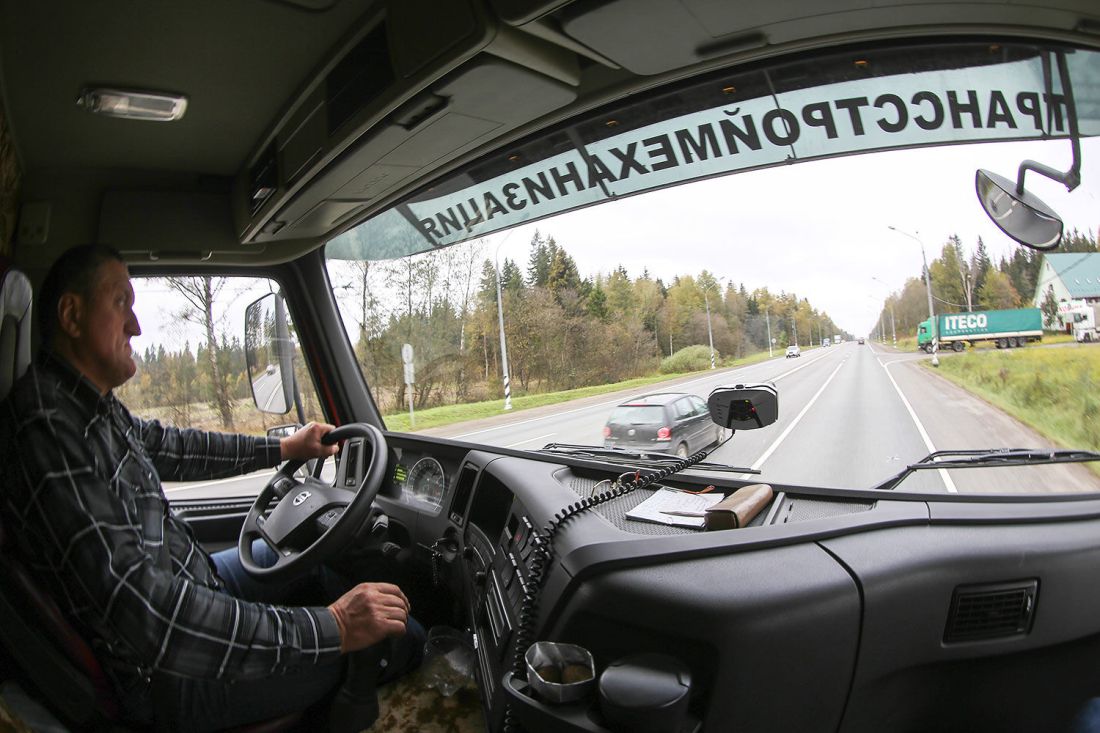 [Three] years ago, on November 15, 2015, Russian authorities launched the Plato system (“Plato” is an acronym for “payment for a ton” in Russian) to collect tolls from owners of heavy-duty trucks traveling on federal highways. The authorities claimed their goal was to compensate for the damage the trucks caused to roads. It was decided the toll would be applied to owners of trucks weighing over twelve tons. Photo courtesy of Maxim Stulov/Vedomosti and RBC
[Three] years ago, on November 15, 2015, Russian authorities launched the Plato system (“Plato” is an acronym for “payment for a ton” in Russian) to collect tolls from owners of heavy-duty trucks traveling on federal highways. The authorities claimed their goal was to compensate for the damage the trucks caused to roads. It was decided the toll would be applied to owners of trucks weighing over twelve tons. Photo courtesy of Maxim Stulov/Vedomosti and RBC 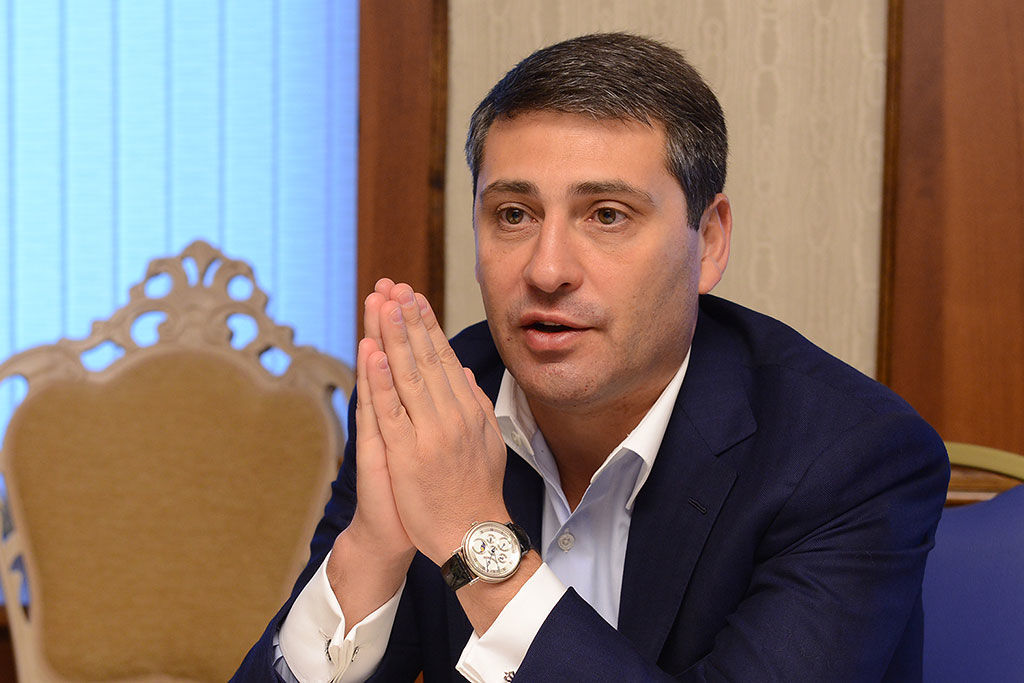 The right to develop and implement Plato was awarded to
The right to develop and implement Plato was awarded to 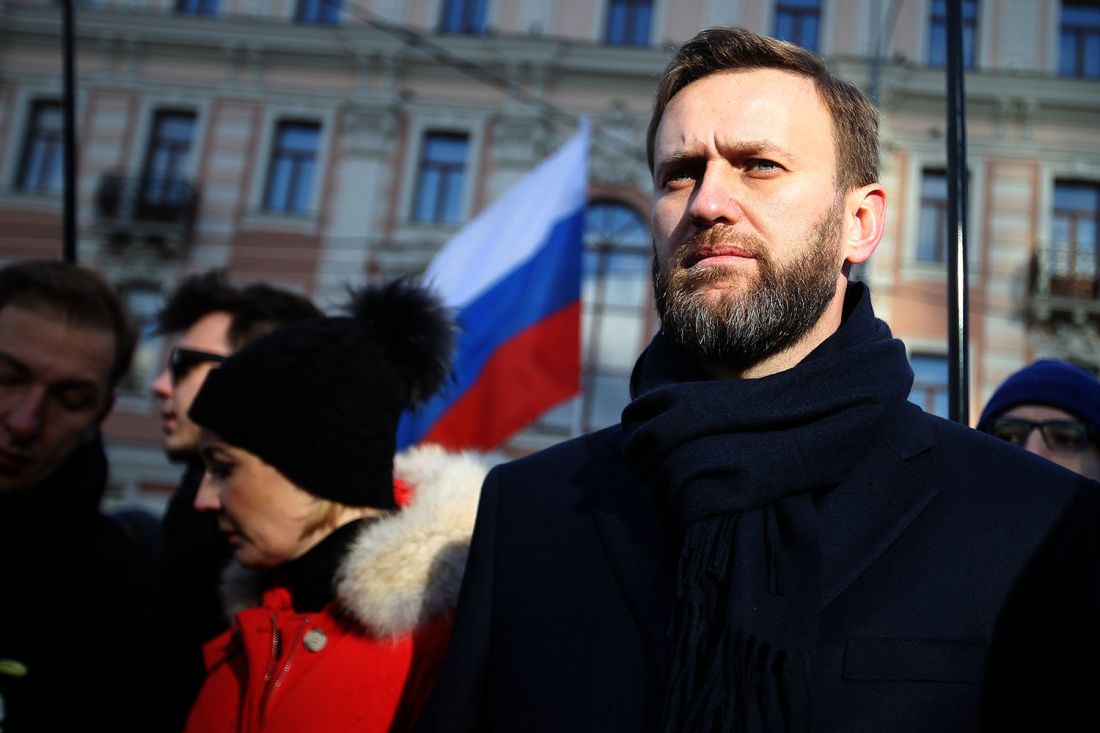 Opposition politician Alexei Navalny and Anti-Corruption Foundation (FBK) lawyer Ivan Zhdanov asked that the courts declare the government’s agreement with RT Invest Transport Systems null and void. Their lawsuit was rejected first by the Moscow Court of Arbitration, and later by the Russian Constitutional Court. Photo of Alexei Navalny courtesy of Yevgeny Razumny/Vedomosti and RBC
Opposition politician Alexei Navalny and Anti-Corruption Foundation (FBK) lawyer Ivan Zhdanov asked that the courts declare the government’s agreement with RT Invest Transport Systems null and void. Their lawsuit was rejected first by the Moscow Court of Arbitration, and later by the Russian Constitutional Court. Photo of Alexei Navalny courtesy of Yevgeny Razumny/Vedomosti and RBC 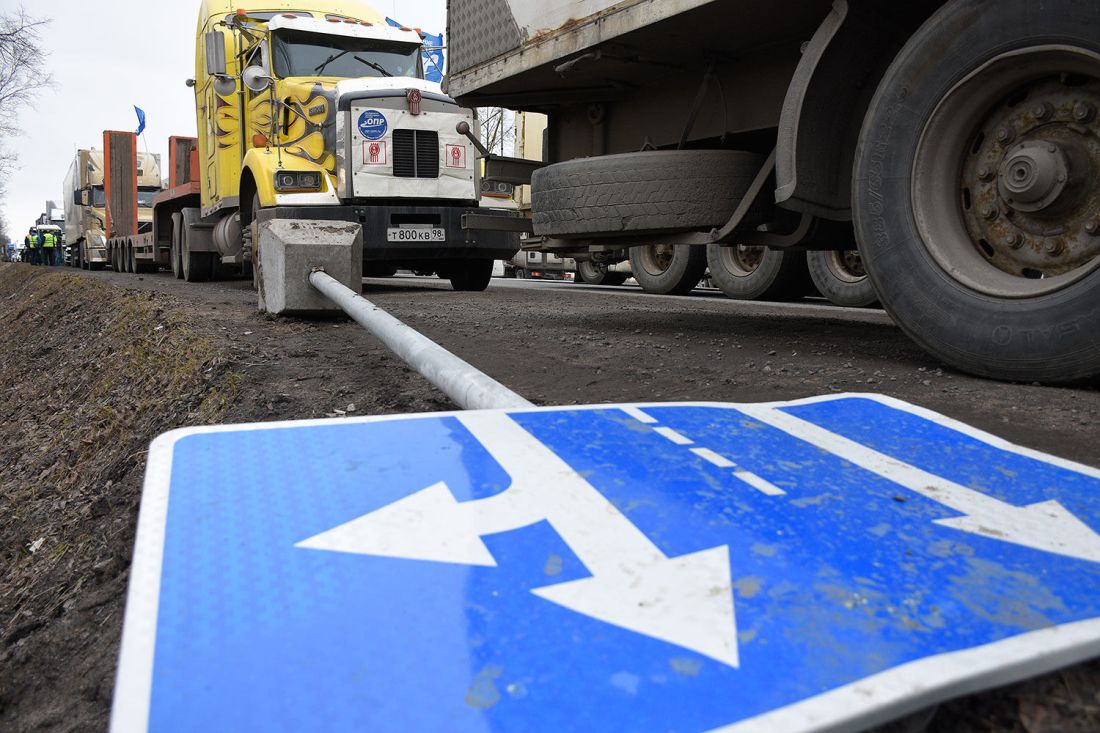 Truckers in forty Russian regions protested against Plato in November 2016. They demanded Plato be turned off, a three-year moratorium imposed on its use, and the system be tested for at least a year. Photo by Yevgeny Yegorov/Vedomosti and RBC
Truckers in forty Russian regions protested against Plato in November 2016. They demanded Plato be turned off, a three-year moratorium imposed on its use, and the system be tested for at least a year. Photo by Yevgeny Yegorov/Vedomosti and RBC 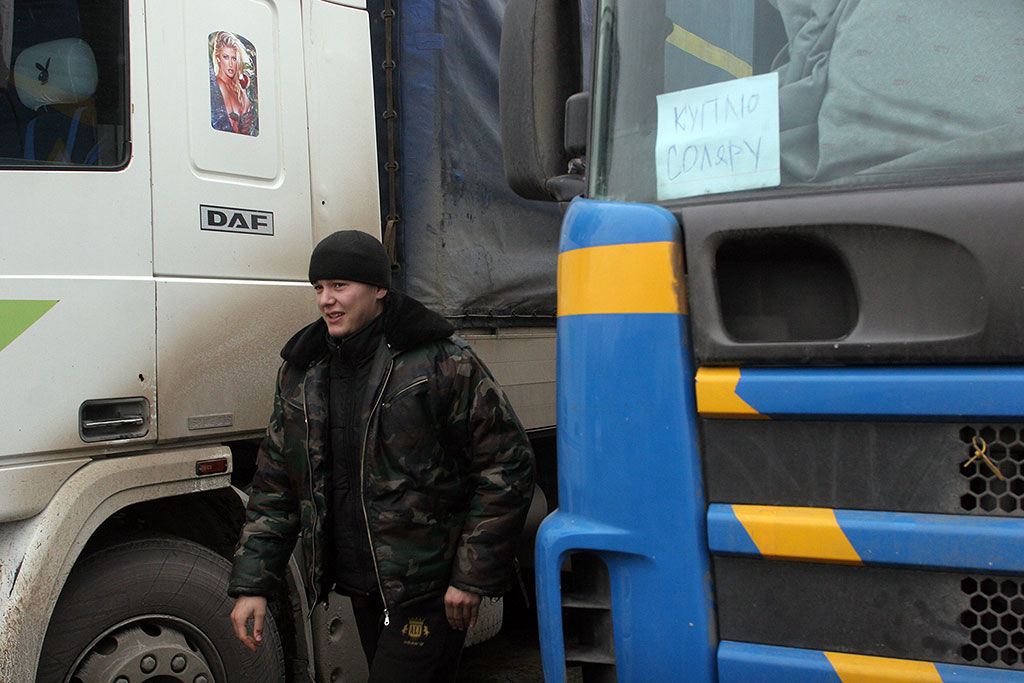 When Plato was launched in November 2015, truck drivers paid 1.53 rubles a kilometer. Four months later, the authorities planned to double the toll, but after negotiations with truckers they made concessions, reducing the toll increase to 25%. Since April 15, 2017, the authorities have charged trucks 1.91 rubles a kilometer. Photo courtesy of Sergei Nikolayev/Vedomosti and RBC
When Plato was launched in November 2015, truck drivers paid 1.53 rubles a kilometer. Four months later, the authorities planned to double the toll, but after negotiations with truckers they made concessions, reducing the toll increase to 25%. Since April 15, 2017, the authorities have charged trucks 1.91 rubles a kilometer. Photo courtesy of Sergei Nikolayev/Vedomosti and RBC 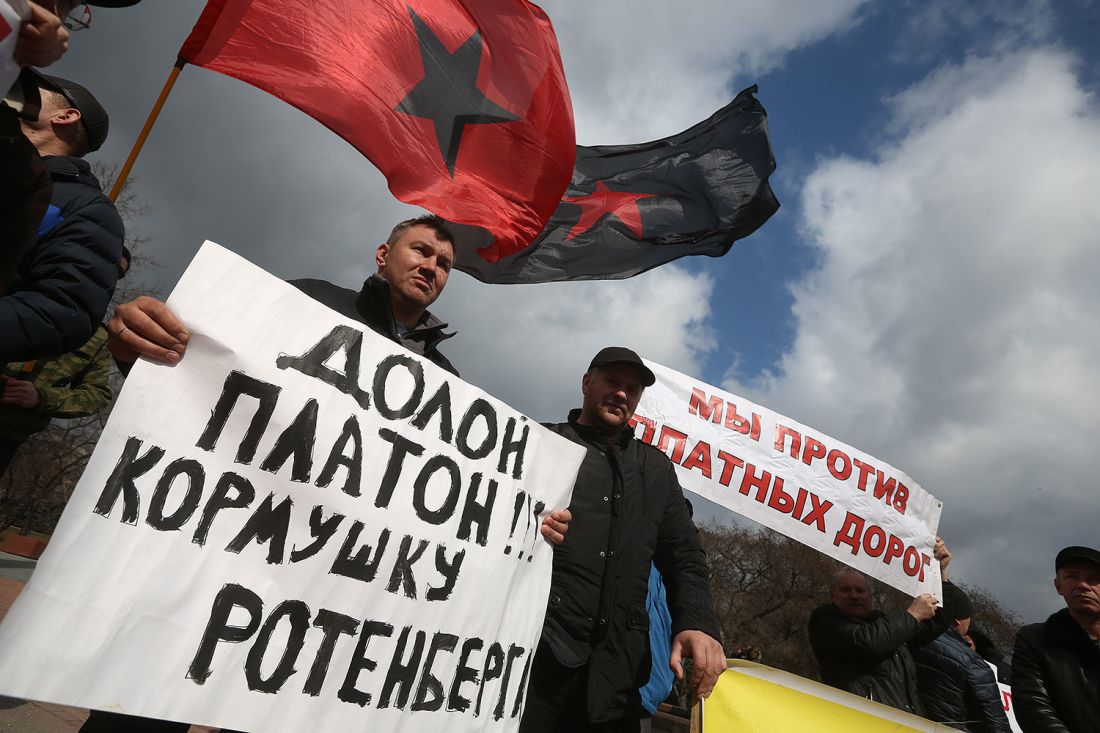 However, even the discounted [sic] toll increase did not sit well with all truckers [sic]. On March 27, 2016, the OPR went on what it called an indefinite nationwide strike. Truckers protested the toll increases and demanded fairness and transparency at weight stations. Photo by Yevgeny Razumny/Vedomosti and RBC. [The slogans read, “Down with Plato!!! It’s Rotenberg’s Feeding Trough” and “We’re Against Toll Roads.”]
However, even the discounted [sic] toll increase did not sit well with all truckers [sic]. On March 27, 2016, the OPR went on what it called an indefinite nationwide strike. Truckers protested the toll increases and demanded fairness and transparency at weight stations. Photo by Yevgeny Razumny/Vedomosti and RBC. [The slogans read, “Down with Plato!!! It’s Rotenberg’s Feeding Trough” and “We’re Against Toll Roads.”] 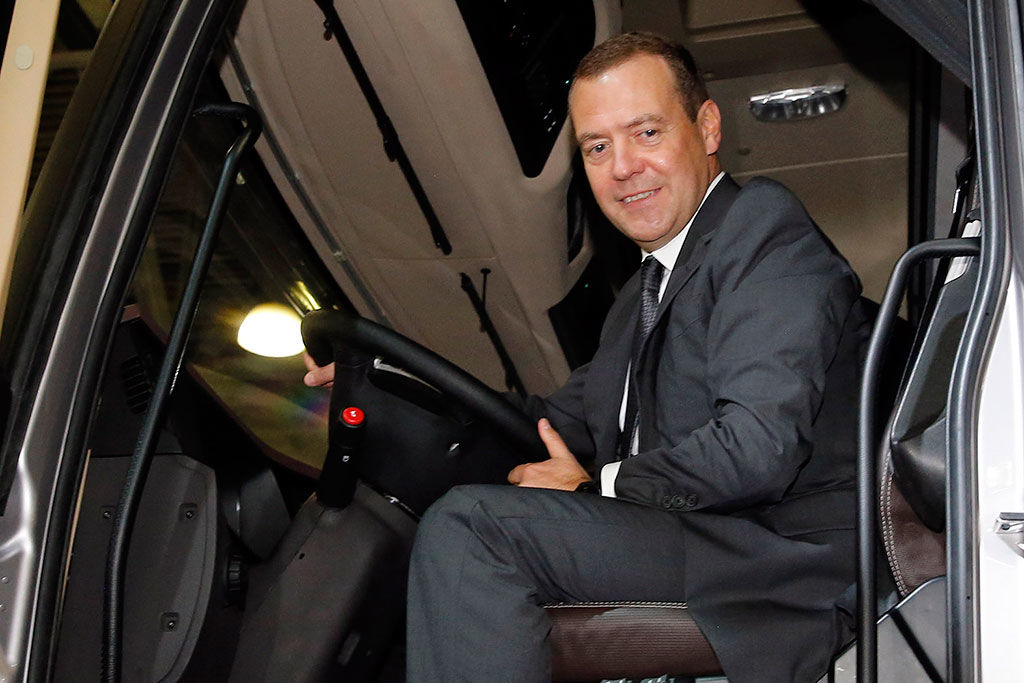 In October 2017, the government approved a bill increasing fines for nonpayment of Plato tolls from 5,000 rubles to 20,000 rubles. If passed, the law would make it possible to charge drivers for violations that occurred six months earlier. The new rules were set to take effect in 2018. Photo of Dmitry Medvedev courtesy of Dmitry Astakhov/TASS and RBC
In October 2017, the government approved a bill increasing fines for nonpayment of Plato tolls from 5,000 rubles to 20,000 rubles. If passed, the law would make it possible to charge drivers for violations that occurred six months earlier. The new rules were set to take effect in 2018. Photo of Dmitry Medvedev courtesy of Dmitry Astakhov/TASS and RBC 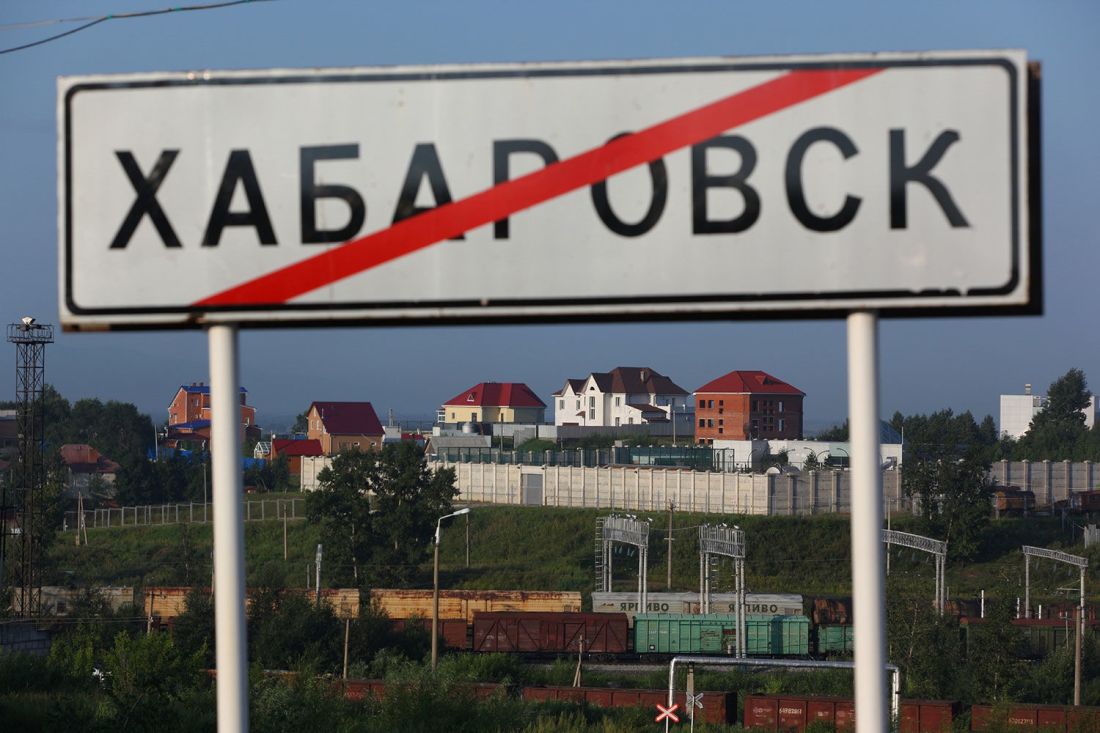 Plato’s database has registered 921,000 vehicles weighing over twelve tons. According to the Russian Transport Ministry, during its first two years of operation, Plato raised 37 billion rubles for the Federal Roads Fund. In the autumn of 2017, the government selected three projects that would be financed by the monies raised by Plato: a fourth bridge in Novosibirsk and bypasses around the cities of
Plato’s database has registered 921,000 vehicles weighing over twelve tons. According to the Russian Transport Ministry, during its first two years of operation, Plato raised 37 billion rubles for the Federal Roads Fund. In the autumn of 2017, the government selected three projects that would be financed by the monies raised by Plato: a fourth bridge in Novosibirsk and bypasses around the cities of 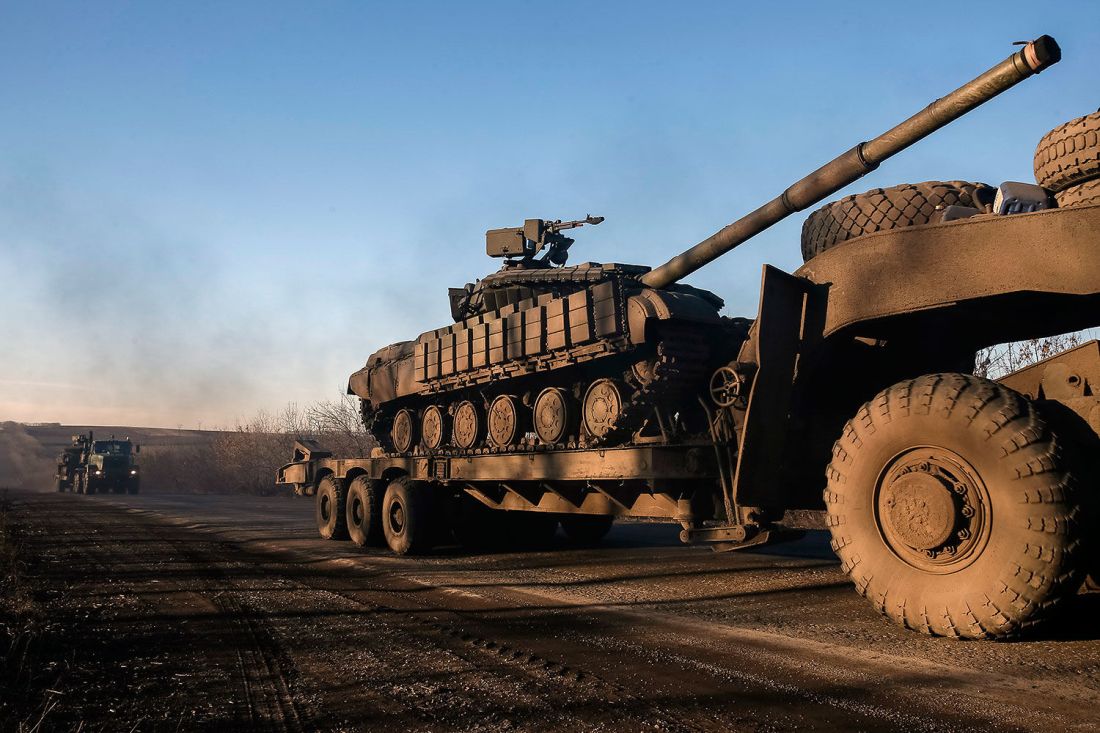 Vehicles that transport people are exempt from Plato tolls, as are emergency vehicles, including vehicles used by firefighters, police, ambulance services, emergency services, and the military traffic police. Vehicles used to transport military equipment are also exempt from the toll. Photo courtesy of Gleb Garanich/Reuters and RBC
Vehicles that transport people are exempt from Plato tolls, as are emergency vehicles, including vehicles used by firefighters, police, ambulance services, emergency services, and the military traffic police. Vehicles used to transport military equipment are also exempt from the toll. Photo courtesy of Gleb Garanich/Reuters and RBC
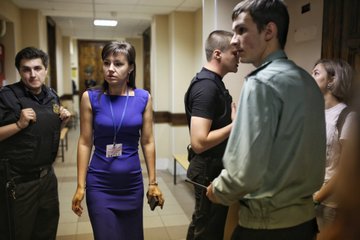
 At €2.50, the official licensed sticker album of the 2018 World Cup is a steal. Russian officials also plan to steal the civil rights of their own citizens during the month-long tournament. Photo by the Russian Reader
At €2.50, the official licensed sticker album of the 2018 World Cup is a steal. Russian officials also plan to steal the civil rights of their own citizens during the month-long tournament. Photo by the Russian Reader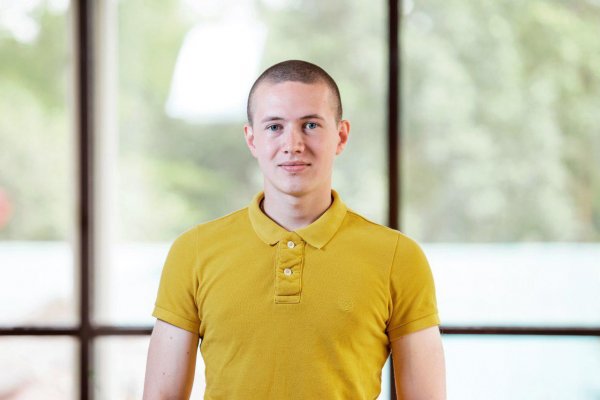 Viktor Filinkov. Photo courtesy of his wife, Alexandra, and OVD Info
Viktor Filinkov. Photo courtesy of his wife, Alexandra, and OVD Info